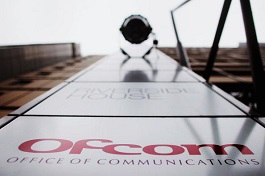Ofcom has said that it plans to boost the capacity of the UK mobile broadband by more than 25 times by 2030.
The UK regulator said it has identified a number of new spectrum bands as potential options for future mobile broadband use as part of the launch of a new consultation process.
Among those options are the 2.3GHz and 3.4GHz frequencies, which are currently owned by the Ministry of Defence but could be attained for use in a future mobile network.
Last month, Ofcom announced it is selling 190 MHz of spectrum used by the MoD.
Additional spectrum in the 3.6 GHz band, which is currently used for satellites links, is another potential candidate. Ofcom said that mobile services should be able to share this band by coordinating with existing satellite users.
The 700MHz frequency is also under consideration. The band currently houses digital TV transmissions, as well as the white space between the frequencies.
The UK regulator named the 20 firms participating in Europe’s first key pilot of white space technology last month.
Further, Ofcom believes that the 900 MHz and 1800 MHz bands could be re-farmed more widely for use by 4G LTE.
Overall, Ofcom said the spectrum it has identified represents “approximately seven times” the amount of spectrum released as part of the 4G auction earlier this year.
“We’re looking at ways to use spectrum more efficiently and consider future releases of prime spectrum,” commented Ofcom CEO Ed Richards.
“By doing so, we can help to meet the significant demands placed on our wireless infrastructure and develop one of the world’s leading digital economies.”
As well as providing better mobile services for consumers, the spectrum could also be used support the growth of machine-to-machine (M2M) communications, Ofcom believes.
Read more



